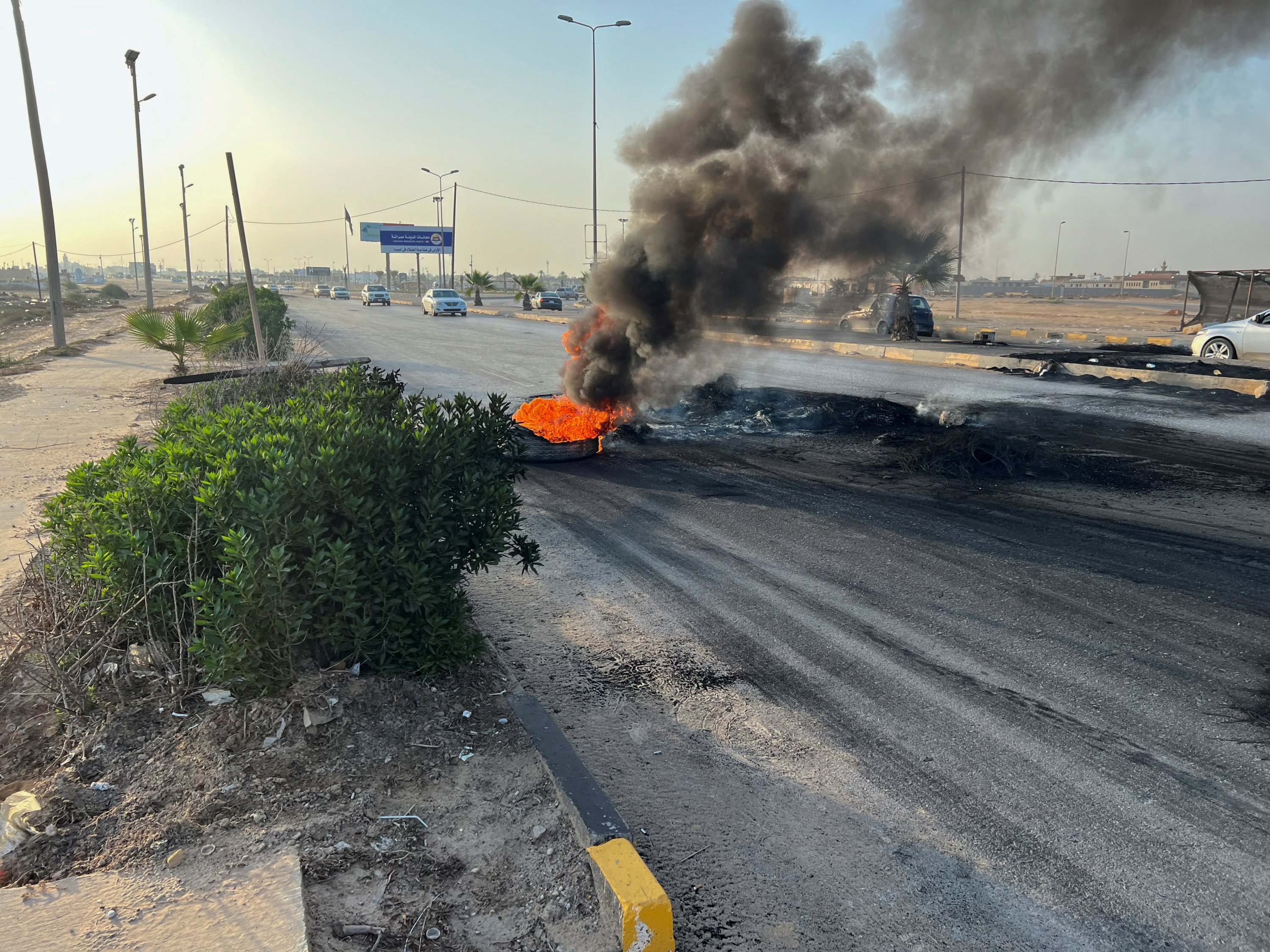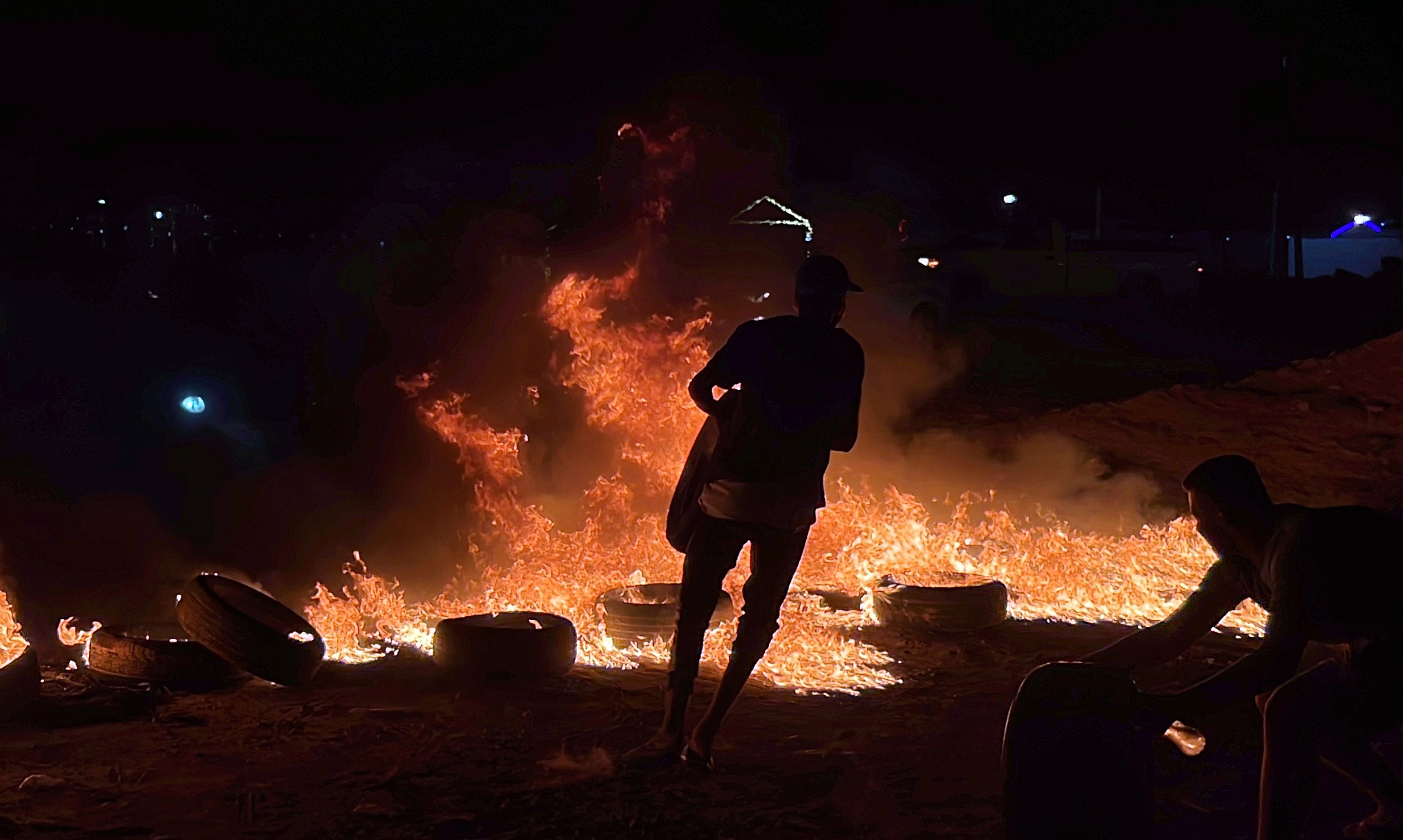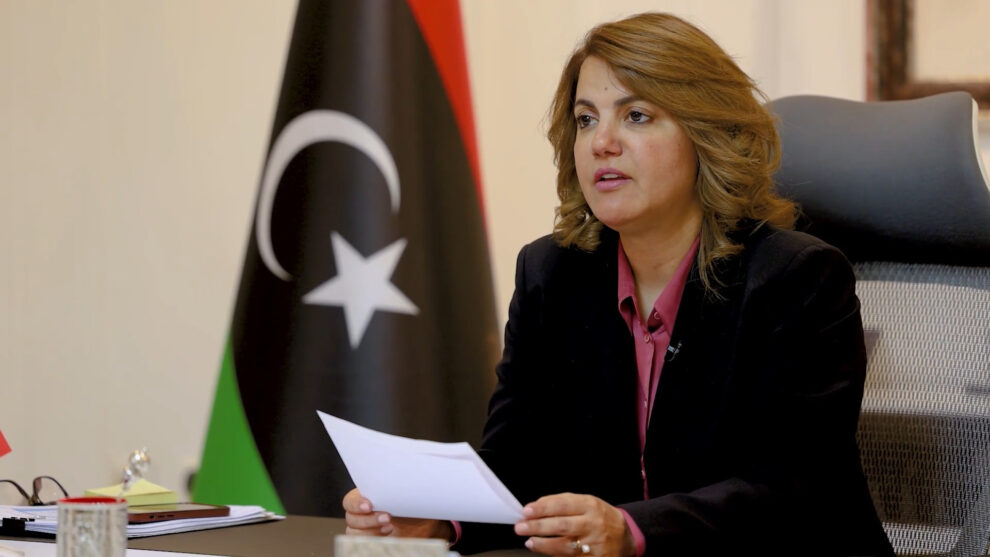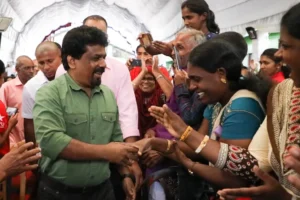Libyan Foreign Minister Najla al-Mangoush was suspended Sunday after an alleged meeting with her Israel counterpart prompted public backlash in the country.
“It was decided to suspend Libyan Foreign Minister Najla al-Mangoush and to launch an investigation against her,” said a decree published by the Government of National Unity, following a decision by Libyan Prime Minister Abdul Hamid Mohammed Dbeibah.
The get-together came to light earlier Saturday when the Israeli Foreign Ministry said a “historic meeting” was held last week between the foreign ministers of Israel and Libya.
Pointing out that the meeting was the first between the foreign ministers of the two countries, it said they discussed the historical ties between the two nations, the legacy of the Libyan Jews, and the possibility of cooperation between their countries.
Dbeibah appointed Fathallah al-Zani, the current youth minister, as interim foreign minister and referred al-Mangoush to an investigation panel.
The Libyan Foreign Ministry later released a statement saying the meeting between al-Mangoush and her Israeli counterpart was “not official.”
“This was an informal and impromptu meeting that took place in Rome during the meeting with the Italian foreign minister. It did not involve any discussion, agreement or consultation,” it said.
It also reaffirmed its full commitment to concerns regarding issues of Arab and Islamic countries, especially the Palestinian issue, and emphasized its adherence to Jerusalem as the eternal capital of Palestine.

The ministry once again emphasized that it “completely and unequivocally rejects normalization with the Zionist formation,” and reaffirmed that its stance is firm towards the Palestinian cause and the brotherly Palestinian people.
Meanwhile, a group of activists gathered in front of the Foreign Ministry building in Tripoli and in other provinces to protest the meeting between al-Mangoush and the Israeli foreign minister.
Local media cited eyewitnesses as saying that gunfire was heard in front of the ministry.
Protesters also set fire to Dbeibah’s residence in the Shatt al-Hanshir area of Tripoli, according to local media.
The House of Representatives has called for an emergency session on Monday to discuss the “crime committed against the Libyan people” in response to al-Mangoush holding a meeting with her Israeli counterpart.
The North African country does not recognize Israel and does not have diplomatic relations with Tel Aviv. It is also forbidden by law to have relations with Israel.

Irresponsible leak
Libya was plunged into chaos after a NATO-backed uprising toppled longtime dictator Moammar Gadhafi in 2011. The oil-rich country has been split between the U.N.-backed government in Tripoli and a rival administration in the country’s east.
Each side has been backed by armed groups and foreign governments. Gadhafi was hostile to Israel and a staunch supporter of the Palestinians, including radical militant groups opposed to peace with Israel.
Sunday’s announcement of the meeting prompted scattered protests in Tripoli and other towns in western Libya. Protesters stormed the foreign ministry headquarters to condemn the meeting, while others attacked and burned a residence for the prime minister in Tripoli, according to local reports.
In the town of Zawiya, protesters burned the Israeli flag, while others held the Palestinian flag. There were also protests in the city of Misrata, a stronghold for Dbeibah, according to footage circulated on social media and verified by The Associated Press.
Khalid al-Mishri, a conservative politician who was the chair of the State Council, a Tripoli-based legislative body, condemned the meeting and called for the dismissal of Dbeibah’s government.
“This government has crossed all prohibited lines and must be brought down,” he wrote on the X platform, previously known as Twitter.
In Israel, Yair Lapid, a former foreign minister and prime minister, criticized Cohen for going public with the sensitive meeting.
“Countries of the world this morning are looking at the irresponsible leak of the meeting of the Israeli and Libyan foreign minister and asking themselves: is it possible to manage foreign relations with this country? Is it possible to trust this country?” Lapid said in a statement.
Source : Daily Sabah
















